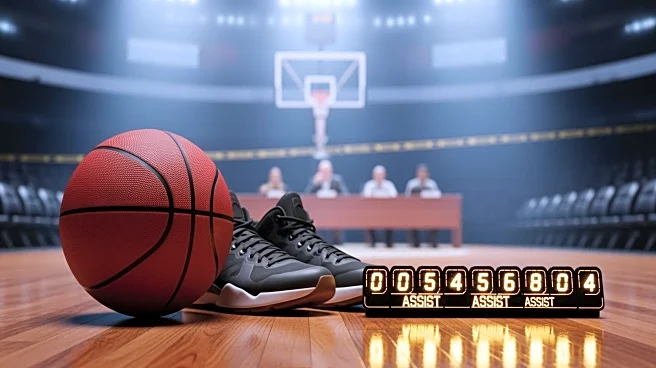What's Happening?
Daria Kasatkina, a Russia-born Australian tennis player, has announced that she is ending her tennis season early to focus on her mental wellbeing. Ranked 19th in the world, Kasatkina has expressed feeling overwhelmed by the demands of the tennis tour, including constant travel and the pressure to perform. Additionally, she is dealing with the stress of obtaining permanent residency in Australia and the inability to visit her parents. Kasatkina, who is engaged to Olympic figure skating medalist Natalia Zabiiako, has been vocal about her opposition to the war in Ukraine and her inability to return to Russia as a gay person. She plans to take a break from the sport and return in 2026.
Why It's Important?
Kasatkina's decision to step back highlights the growing awareness and importance of mental health in professional sports. Her situation underscores the pressures athletes face, not only from competition but also from personal and geopolitical challenges. This move may encourage other athletes to prioritize their mental health and could lead to broader discussions about the support systems available to athletes. Kasatkina's openness about her struggles may also inspire others facing similar issues to seek help and take necessary breaks.
What's Next?
Kasatkina plans to return to professional tennis in 2026, aiming to come back refreshed and ready to compete. Her decision may prompt tennis organizations to reevaluate the support and resources they provide to players, particularly concerning mental health. Other players, like Elina Svitolina and Beatriz Haddad Maia, have also ended their seasons early, indicating a potential trend towards prioritizing mental health over continuous competition.
Beyond the Headlines
Kasatkina's situation also sheds light on the challenges faced by athletes who are part of the LGBTQ+ community, especially those from countries with restrictive policies. Her inability to return to Russia due to her sexual orientation and political stance highlights the intersection of sports, politics, and personal identity. This could lead to increased advocacy for the rights and safety of LGBTQ+ athletes worldwide.









